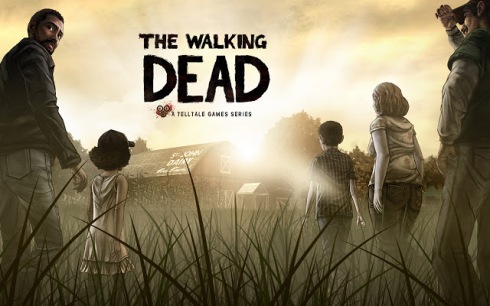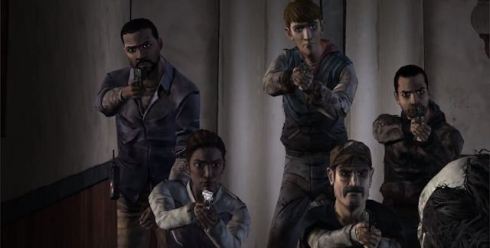The Walking Dead: Part Two
I can’t think of a better game to start this discussion than Telltale’s The Walking Dead.
WARNING: This post contains SPOILERS. Read at your own risk.
The Walking Dead does many, many things right, and I hope that it’s popularity spurs other game developers to be a little more daring in some of their choices. (Heck, I hope it makes the TV show a little more daring.)
This is a game where the characters have supreme importance. It is not about bombastic gunfights or stunning scenery that you travel through while completing an epic quest or even a game that challenges player’s skills or reflexes. At it’s core, The Walking Dead is about character interaction.
The interpersonal tensions between characters and the growth of Lee Everett as a person are the story. Each character — their experiences, traits, and desires — creates the game world and narrative in ways that are not common in most modern, popularly and critically lauded games.
I really want to commend Telltale for what they’ve accomplished. The point-and-click adventure game isn’t a particularly lucrative genre these days, but they still took risks with their characters in a medium that is notorious for the cocky, white, muscular soldier/space marine/adventurer.
It would have been very easy to make The Walking Dead with a more homogenous, commercially acceptable cast of characters. I doubt many people would have commented — at least not with enough power to negatively impact sales. (Again, I’ll point to the TV show. It’s very successful despite the apparent lack of black people in Georgia.) But if Telltale had gone that conventional route, I believe the game would have suffered and been a less uniquely enjoyable experience.
Race
There was a moment in Episode Five where I realized that the main cast consisted of three black characters, one white character (my Ben died in Episode Four — there would have been two white characters if he had lived), and one Persian-American character, meaning that the majority of the cast was non-white. At the end of the episode only two black characters and the Persian-American character remained.
While the game had already been doing a great job with keeping the cast racially diverse throughout, I was struck by how unprecedented this is in games. How many times have you played a game where all of the important characters are non-white? (If you have examples, let me know! I’d love to try these games out.)
I’m not trying to downplay the rest of the game with this observation. Glenn (Asian-American) makes an appearance, there are non-white minor characters (like some of the cancer survivors in Savannah), and of course a bunch of the non-white main characters, who are the people we get to know the most, survive through multiple episodes. I’ve always liked that Katjaa, although white, is Belgian, lending some additional complexity to a character that could have been a blonde, blue-eyed American.
Perhaps the most important examples of how Telltale handles race are Lee and Clementine. I find these two characters to be such important aspects of the game that I’m reserving the topic for another post.
Gender
Telltale also handles gender exceptionally. The lack of female characters in video games has been discussed to death, and it’s nice to see a game that includes a diverse and interesting cast of both men and women.
Looking through the characters listed on The Walking Dead wiki, I count twenty-six male characters and thirteen female characters in the cast, including the minor characters. When I narrow it down to only major characters that wind up joining Lee’s group, there are eight men and six women. How many men and women are in the group at any given time is a little flexible considering situations such as choosing between saving Doug or Carley.
That’s not too shabby compared to many current video games. But what’s more important to me is the importance of the women in the game. Just like the man, they are characterized as unique, often flawed individuals with useful talents that contribute to the group’s survival.



Recent Comments